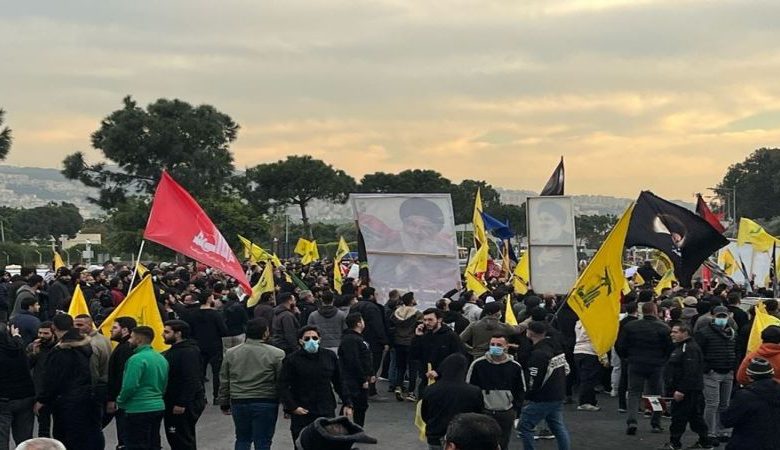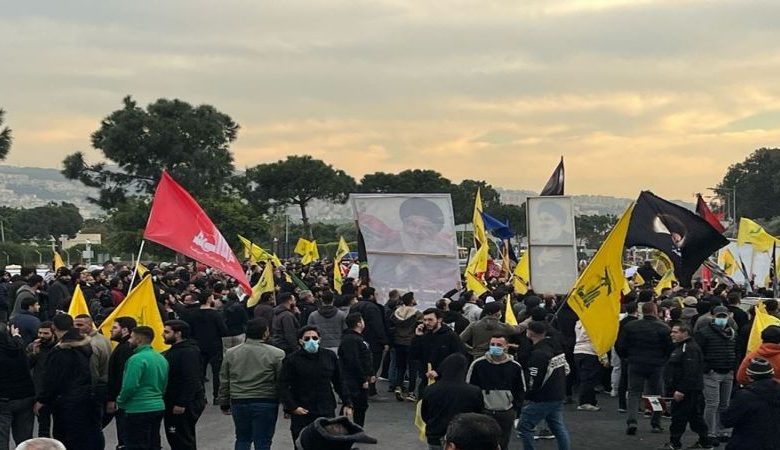It has become increasingly evident that a carefully coordinated effort to encircle the resistance and its supporters is underway—engineered by "Israel" and backed by the United States.Whenever the spokesperson for the Zionist military seeks to assert control, he issues a new warning or threat—this time, to prevent specific aircraft from landing at Beirut’s Rafic Hariri International Airport, under the pretext that they carry funds for the resistance. In response, Lebanese authorities, eager to avoid confrontation, comply with these demands to safeguard the country’s only international airport.
There is no doubt that "Israel" can carry out its threats, as it operates with impunity, beyond the reach of international laws and resolutions, enjoying unwavering support from the U.S. administration. What, then, would stop "Israel" from escalating its demands in the future? Could it extend its restrictions to flights arriving from Africa, Turkey, Iraq, Brazil, or anywhere else in the world, using the same justification?
Reconstruction, Not Armament
The issue of Iranian financial aid to Lebanon must be addressed clearly. It is widely known that these funds are allocated for rebuilding the devastation caused by Israeli aggression—not for arming the resistance. The resistance does not rely on transferred funds to procure weapons—where would they even be purchased? From which market?
These funds are strictly designated for reconstruction, a task the Lebanese state is financially incapable of undertaking. The true objective, then, is to make reconstruction contingent on political concessions that the resistance and its supporters must pay—a blatant act of political blackmail.
A Plan to Strangle the Resistance’s Supporters
The resistance’s supporters feel they are being deliberately humiliated and suffocated—denied the right to return to their villages in the South, obstructed from rebuilding their homes in the South, Beirut, and the Bekaa region, and politically targeted. In response, they took to the streets, blocking the airport road in protest against the blockade, demanding that political authorities reverse the ban on Iranian flights.
However, the protest took a troubling turn when an attack was carried out against UNIFIL vehicles, shifting the nature of the demonstration and leading to a serious misstep—one that harmed the demonstrators' cause and Lebanon as a whole. Such an incident constitutes a violation of international law with potentially severe consequences.
Lebanese security forces have since arrested several individuals involved, and investigations are underway to determine whether the attack was orchestrated by infiltrators or carried out by reckless youths unaware of the gravity of their actions. The findings of the investigation will reveal the truth.
Hezbollah was swift in condemning the attack. Hajj Wafiq Safa, head of Hezbollah’s Liaison and Coordination Unit, affirmed that the resistance maintains a good relationship with UNIFIL and does not condone such actions.
A Second Protest: Defying Zionist Dictates
In response to continued pressures, the resistance called for a second protest yesterday on the airport road, during which its officials delivered speeches urging the state not to submit to the Zionist enemy's demands.
These demonstrations, however, were met with criticism from anti-resistance factions in Lebanon. Some figures from these groups objected to the closure of the airport road, arguing that it serves all Lebanese and its closure disrupts public interests. Yet, these same voices conveniently overlook the fact that they themselves had blocked roads all across Lebanon for over a year, occupied public and private properties, and engaged in acts of vandalism and violence against security forces—all under the pretext of peaceful demonstrations.
Israel’s Withdrawal: Unmatched Arrogance
Only hours remain until the scheduled withdrawal of the Zionist enemy from southern Lebanon. However, reports indicate that "Israel" intends to maintain a military presence at five strategic points along the southern border. During his recent visit to the United States, Netanyahu reportedly requested an extension of Israeli military presence in South Lebanon. However, sources suggest that the U.S. administration rejected this request.
In an attempt to mediate a solution, France proposed deploying its forces at these five points under the UNIFIL banner—an arrangement seemingly acceptable to all regional actors. However, "Israel" refused this proposal outright.
Meanwhile, large machinery and bulldozers have been spotted transporting massive concrete barriers to these positions, signaling that "Israel" is reinforcing them for a prolonged presence.
Lebanese Leadership Rejects Any Israeli Presence
The Lebanese leadership, represented by the President, the Speaker of Parliament, and the Prime Minister, has formally conveyed to the U.S. and France its absolute rejection of any extension of the Israeli military’s stay in South Lebanon—not even for a single minute. They have also refused any arrangement allowing the Zionist enemy to retain control over these five positions, as such a scenario constitutes occupation and will be treated accordingly.
"Israel’s" insistence on remaining in these locations—extending 300 meters westward and 2,000 meters eastward inside Lebanese territory—is not merely about controlling strategic points or dominating the area south of the Litani River. Rather, it is an attempt to impose a new de facto line of withdrawal, redrawing boundaries and planting a Zionist presence inside Lebanese land.
A Historic Funeral
In the midst of these developments, Lebanon prepares for the funeral of the revered martyrs Sayyid Hassan Nasrallah and Sayyid Hashem Safi al-Din—an event expected to be historic, with massive crowds gathering to pay tribute. This funeral will not only honor their sacrifice but will also serve as a resounding declaration of the resistance’s resilience, reaffirming the unwavering commitment of its supporters to its cause—regardless of the price.
A Critical Point
Lebanon stands at a dangerous and defining crossroads. The coming days will determine the fate of the "Israeli" withdrawal, particularly in light of reports that U.S. envoy Morgan is set to arrive in Beirut. Her visit is expected to clarify the American administration’s stance on whether the withdrawal will proceed as planned—and under what conditions.








